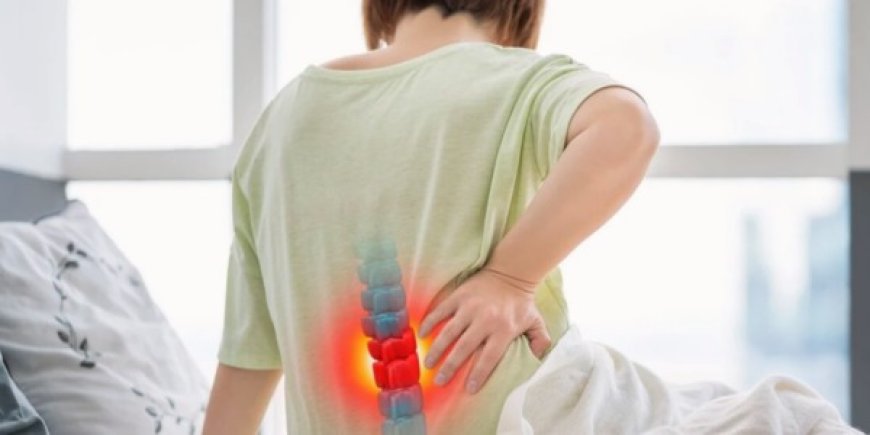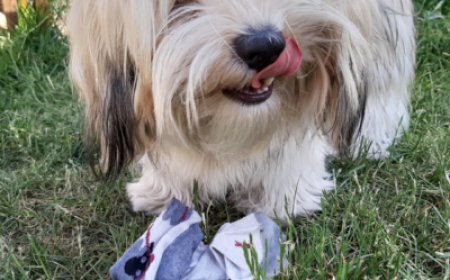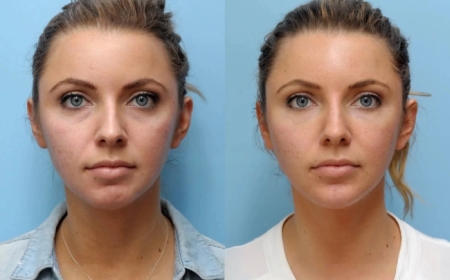Preventive Tips from the Best Spine Doctor in Delhi for Those with a Family History of Slip Disc
Discover expert preventive tips from the best spine doctor in Delhi to reduce your risk of slip disc—especially if it runs in your family. Learn how lifestyle, posture, and regular checkups can protect your spine health.

(Dr. Amit Shridhar, Internationally Trained Endoscopic Spine Surgeon, HOD, Dept. of Spine Surgeries & Rehabilitation, Sant Parmanand Hospital, New Delhi )
Understanding Slip Disc and Hereditary Factors
Doctors refer to a slip disc as a herniated or prolapsed disc. It happens when the soft material separating your vertebrae pushes through a crack or tear in the outer layer. This can bring about pain, weakness, or even a tingling feeling in the back and limbs. Studies have shown that genetics have a significant role in causing slip disc issues. Research such as the Twin Spine Study, found that up to 75% of a person's risk of intervertebral disc degeneration comes from genetic factors. It is essential to know about slip discs and their link to genetics if you have relatives who experienced this problem.
If your parents, siblings, or close relatives have dealt with slip disc issues, your chances of facing the same problem go up a lot. First-degree relatives carry a notable risk of 4.15 times more for getting lumbar disc disease than the average person. This means that with a family history of this condition, your odds of developing a slip disc are over four times higher.
How Family History of Slip Disc Increases Your Risk
A family history of slip disc raises your odds because of various genetic factors at play.
-
Collagens Role from Genes: Your genes decide how strong and durable collagen is in your disc tissue. Weak collagen increases the chances of discs wearing out sooner.
-
Spinal Features Passed Down: Traits like spine shape, disc size, or how the vertebrae line up can run in families and raise the risk of disc issues.
-
Bodys Reaction to Inflammation: Genetic makeup affects how your body handles inflammation, which has a big role in disc wear and tear.
-
Inherited Metabolism: Conditions tied to metabolism you inherit from your family can change how discs get nutrients and stay healthy.
Knowing these genetic risks doesnt mean a slip disc is certain. Instead, it stresses taking steps to prevent issues with help from a top spine expert in Delhi.
Early Slip Disc Symptoms to Watch For

Spotting signs of a slip disc can help you get help sooner and avoid making it worse. Be extra careful if your family has a history of this problem. Watch out for:
-
Lower back pain that sticks around and gets worse when you move
-
Intense, shooting pain traveling down one or both legs (sciatica)
-
Feeling numb or tingling in your arms or legs
-
Weak muscles in your legs or feet
-
Difficulty in controlling your bladder or bowel in bad cases
-
Pain that feels worse when you sit, sneeze, or cough
These problems might build up over time or appear after lifting something heavy or moving . Catching it and meeting a best doctor for back pain in Delhi can stop things from getting worse and help avoid major treatments.
Effective Slip Disc Prevention Strategies
Preventing slip disc issues requires staying active, sitting right, and keeping weight in check. Spine experts share some important ways to help with this:
1. Keep Weight in Check
Extra weight strains the spine and the lower back. People with a higher BMI are more likely to experience disc-related problems. Eating a balanced diet and exercising can lower this risk and help you maintain a healthy weight.
2. Build a Strong Core
A strong core plays a big role in supporting the spine. Core-strengthening workouts help spread the load across the spine instead of stressing the discs too much.
Try these exercises:
-
Try different plank types. Start with holding them for 15 to 30 seconds and increase the time.
-
Do the bird-dog move with 10 to 12 reps on each side.
-
Practice pelvic tilts by doing 15 to 20 reps.
-
Gentle yoga can help build a stable core.
3. To Maintain Proper Posture
Bad posture makes your spine and discs work . Keeping your body aligned while sitting, standing, or lifting is important to prevent slip discs.
Tips for good posture:
-
Use back support and keep your feet flat while sitting.
-
Spread your weight on both feet when standing.
-
Follow the natural curves of your spine in both sitting and standing positions.
-
Take short breaks if you sit for long hours.
-
Choose ergonomic furniture and tools.
4. How to Lift Properly
Lifting often leads to slip disc problems. Remember to:
-
Bend with your knees instead of your waist
-
Keep the item near your body
-
Avoid twisting motions while lifting
-
Ask someone to help with heavy objects
-
Use tools designed to help lift whenever possible
Expert Guide on How to Prevent Slip Disc
Knowing how to avoid a slip disc becomes even more important if it runs in your family. While basic prevention helps here are some targeted tips shared by the top slip disc doctor in Delhi:
Specialized Exercise Program
Exercises tailored to keep your spine healthy can lower the chances of a slip disc. These involve:
-
McKenzie Exercises: These back movements aim to shift pain to a central point and support better disc alignment.
-
Low-Impact Cardio Workouts: Activities like swimming, cycling, and walking help blood flow to the spine without causing too much strain.
-
Focused Stretching: Stretching the lower back, hamstrings, and hip flexors regularly eases pressure on the spine.
-
Proprioception Exercises: Practicing movements that build body awareness helps you keep good posture in everyday life.
Lifestyle Modifications
Certain habits play a big role in how healthy your discs stay.
-
Quit Smoking: It reduces blood flow to spinal discs, speeding up their degeneration. Quitting helps protect your spine and slow this damage.
-
Stay Hydrated: Drinking enough water keeps spinal discs healthy and nourished.
-
Adjust Sleep Posture: Sleeping on your side with a pillow between your knees or on your back with one under your knees helps lower the pressure on discs.
-
Handle Stress: Ongoing stress tightens muscles and can lead to bad posture or poor movement habits.
Preventive Measures Comparison Table
|
Preventive Measure |
Effectiveness |
Difficulty Level |
Time Commitment |
Benefits |
|
Core Strengthening |
High |
Moderate |
15-20 min, 3x/week |
Improved stability, reduced disc pressure |
|
Weight Management |
High |
High |
Ongoing |
Reduced spinal load, improved mobility |
|
Proper Lifting Technique |
Very High |
Low |
Minimal |
Immediate reduction in injury risk |
|
Ergonomic Workspace |
Moderate |
Low |
One-time setup |
Reduced daily disc stress |
|
Smoking Cessation |
High |
Very High |
Ongoing |
Improved disc nutrition, slower degeneration |
|
Regular Movement Breaks |
Moderate |
Low |
5 min every hour |
Prevents static loading, improves circulation |
|
Specialized Exercises |
Very High |
Moderate |
30 min, 5x/week |
Targeted protection, improved function |
|
Stress Management |
Moderate |
Moderate |
15 min daily |
Reduced muscle tension, better posture |
Advanced Slip Disc Treatment Options
Doctors now use less invasive methods to treat slip discs, which helps patients recover more . Though its better to prevent the problem in the first place, learning about treatment options can ease worries for those with a family history of this condition.
Conservative Treatments
Most people with slip discs get good results from treatments that dont require surgery:
-
Physical Therapy: Programs designed to make muscles stronger and keep the body moving better.
-
Medication: Drugs that help reduce inflammation, relax tight muscles, and manage pain.
-
Epidural Steroid Injections: Medicine that controls swelling applied to the injury.
Minimally Invasive Procedures
If treatments without surgery dont work, doctors may try low-risk procedures that are less invasive:
-
Micro-Endoscopic Discectomy: Doctors make tiny cuts and use special tools to take out the herniated part of the disc. This eases nerve pressure. It allows faster healing and reduces pain after surgery.
-
Percutaneous Transforaminal Lumbar Endoscopic Discectomy (PELD): Surgeons do this under local anesthesia. There is very little blood loss, and patients can move right after surgery. This method is successful, with over 1000 cases completed.
A Best endoscopic spine surgeon in Delhi performs these advanced procedures with small cuts. It leads to speedier recovery of any scars, fewer risks, and accurate treatment of the problem.
Procedures Performed by the Best Endoscopic Spine Surgeon in Delhi
Spine surgery has seen major progress over the past few years. Newer endoscopic methods have clear benefits compared to older open surgeries.
-
Endoscopic Discectomy: This procedure involves using a small incision, a tiny camera, and special tools to take out herniated disc material.
-
Endoscopic Foraminotomy: Surgeons perform this to make the nerve root passageway wider to ease nerve pressure.
-
Endoscopic Rhizotomy: This method focuses on specific nerves to address pain caused by them.
-
Endoscopic Fusion: A minimally invasive way to connect vertebrae when needed.
These techniques often lead to:
-
Hospitals stay shorter often outpatient
-
Less pain after surgery
-
Fewer chances of infection
-
Quicker to get back to usual activities
-
Tiny or visible scars
Consulting the Best Doctor for Slip Disc in Delhi: When and Why
A best doctor for slip disc in Delhi makes a prevention plan tailored to your family history. Prevention matters, but it is just as important to recognize when you need expert care.
When to Consult a Specialist
Book a consultation if you:
-
Several close family members suffering from a slip disc
-
Ongoing back pain that doesn't improve for over a week
-
Feeling pain spreading, numbness, or a tingling sensation in arms or legs
-
Weakness in your legs or feet becoming noticeable
-
Problems with controlling bladder or bowel functions
-
Pain that keeps you up at night or makes daily tasks difficult
Benefits of Expert Consultation
Visiting a Best spine doctor in Delhi can help lower the chances of a slip disc even if it runs in your family. A spine expert has the ability to:
-
Review Your Risk Personally: Doctors examine your family history and might suggest physical exams or imaging tests.
-
Create a Custom Prevention Guide: Experts shape it based on what you need and how you live.
-
Take Action : They catch small issues and address them so they dont turn into bigger troubles.
-
Track Progress : Regular health checks help keep an eye on any warning signs.
-
Connect You with Advanced Care: If something does go wrong, you get access to the best available treatments right away.
Why Choose Sant Parmanand Hospital for Spine Care
Sant Parmanand Hospital located in Delhi, provides full-range spine care with the latest treatment options. The hospital has:
-
Modern diagnostic tools
-
A focused unit for spine-related care
-
A team-based treatment approach
-
Easy-to-access OPD services to help with follow-ups
-
Quick emergency services to handle serious problems
-
Recovery programs aimed at full rehabilitation
The spine care specialists at the hospital combine their efforts to offer complete care. They cover everything from spine health prevention to treatment and recovery.
Conclusion: Taking Control of Your Spine Health
Having relatives with a history of slip disc doesnt mean youre bound to face the same issue. You can reduce the risk by taking proactive steps, getting regular checkups, and seeking advice from experts to keep your spine healthy and free of pain.
Acting plays a big role. Using the tips in this article watching out for warning signs, and seeing a spine specialist when needed can help. Preventing problems is easier and more effective than treating them later.
If slip disc runs in your family, think about booking a checkup with a spine specialist at Sant Parmanand Hospital. By starting prevention and creating strategies tailored just for you, its possible to protect your spine for the long haul.
You can follow expert medical advice and stick to regular self-care routines to live an active life without pain even if slip disc runs in your family.







































